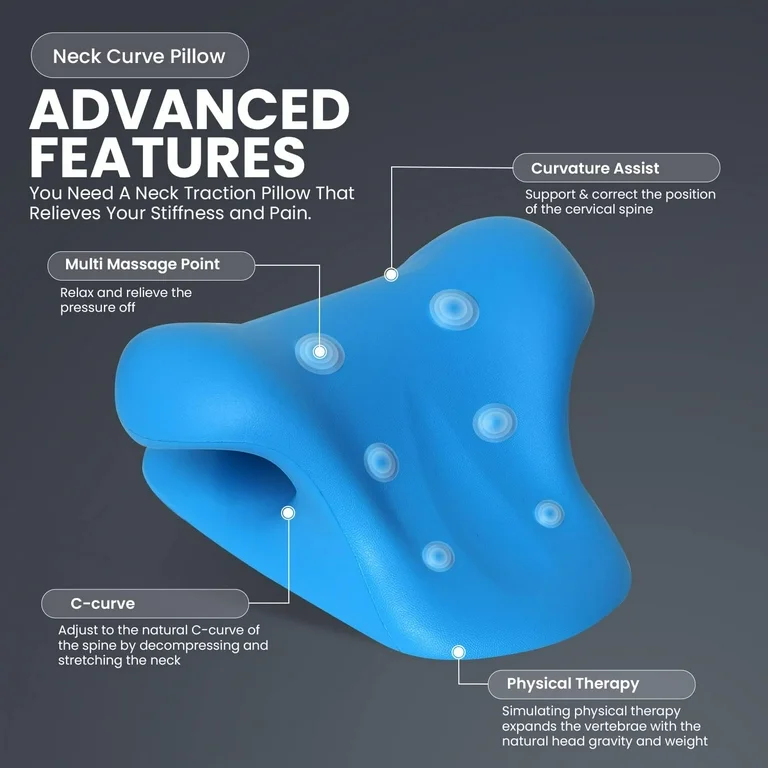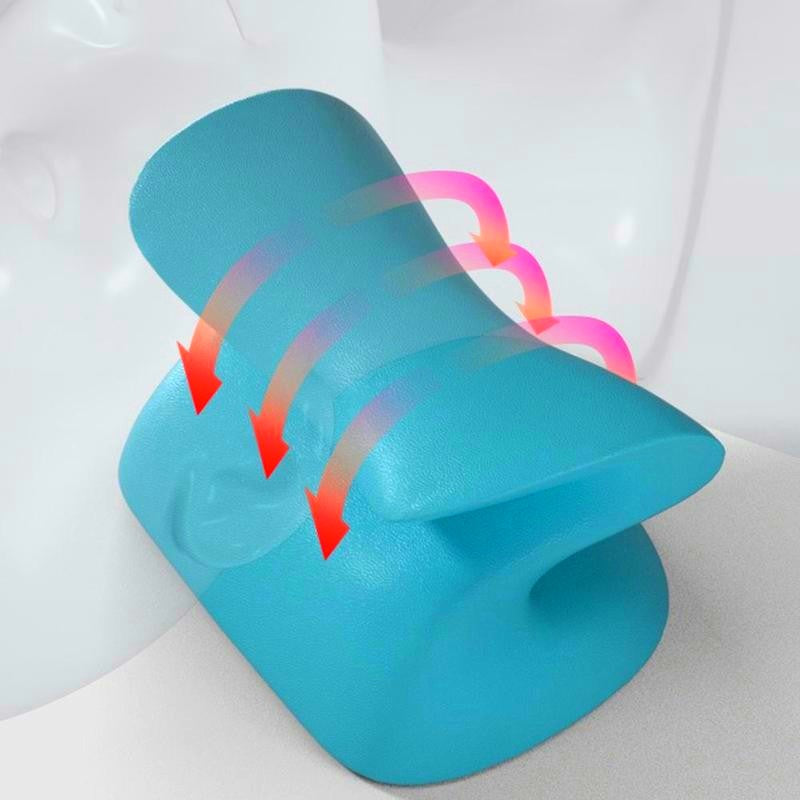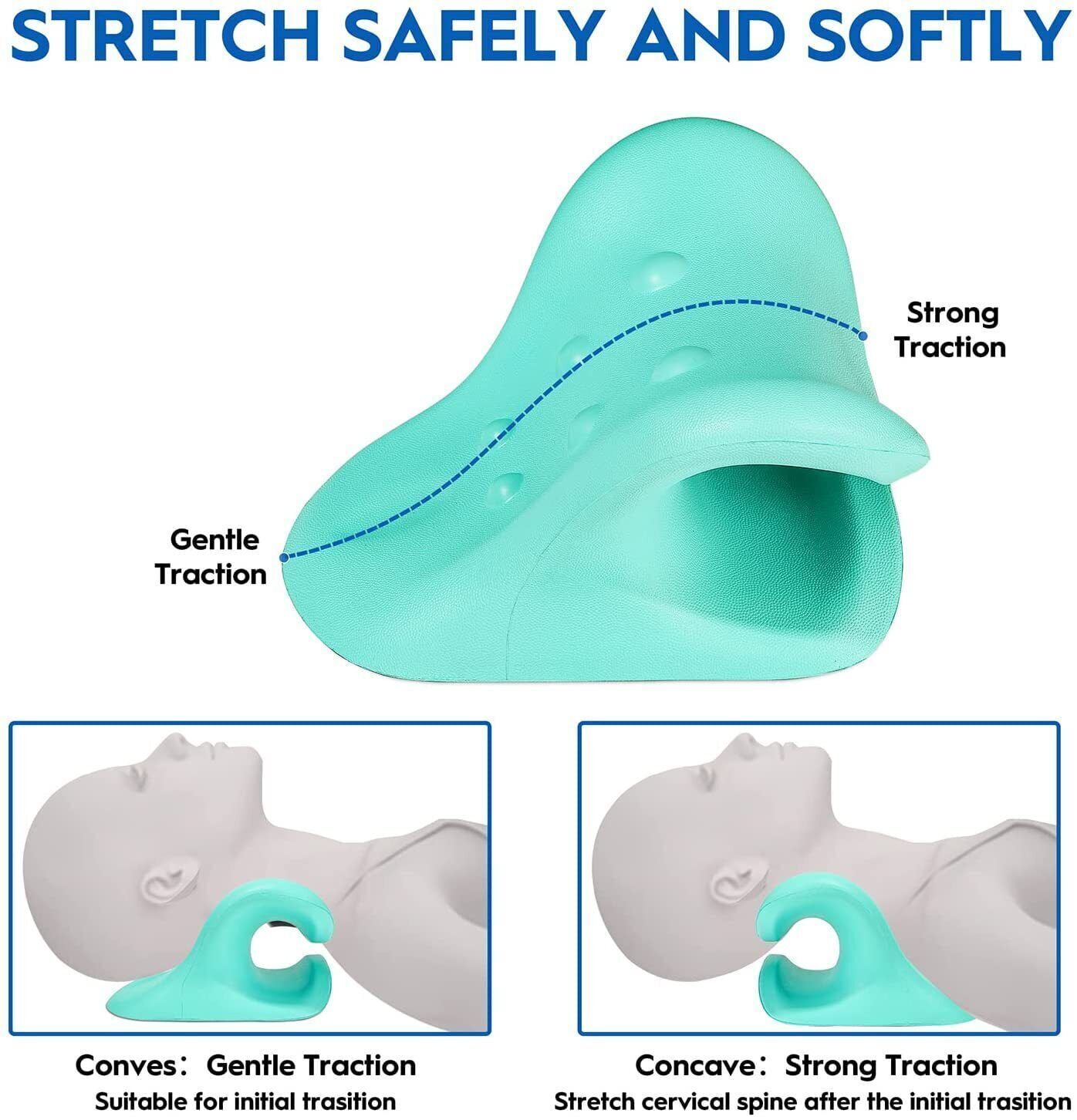Neck Cloud: Ergonomic Design for Optimum Comfort and Discomfort Reduction
Neck Cloud: Ergonomic Design for Optimum Comfort and Discomfort Reduction
Blog Article
The Influence of Anxiety on Neck Pain: Approaches for Decreasing Tension and Discomfort
In today's busy world, it's obvious that stress has ended up being a common factor in the onset and exacerbation of neck pain. The intricate connection between stress and muscular tissue tension often leaves people looking for alleviation from the discomfort that takes place. By exploring targeted techniques targeted at decreasing stress and advertising relaxation, one can begin to resolve the source of neck discomfort and work in the direction of a much more balanced state of well-being. Join us on a trip to decipher the impact of stress on neck pain and uncover efficient methods to relieve pain and improve overall lifestyle.
Comprehending Stress-Related Neck Pain
Neck pain is a typical issue that can usually be credited to tension. Stress-related neck discomfort can show up as tension, stiffness, or discomfort in the neck and shoulder location. The link in between stress and anxiety and neck discomfort hinges on the body's physiological response to tension, which can cause muscle stress and rigidity in the neck muscle mass. Chronic tension can lead to consistent neck discomfort and intensify status quo like cervical spondylosis or muscle mass strains.

Identifying Common Tension Locations
Often experienced by individuals under anxiety, stress areas in the body can offer valuable understandings into the physical manifestations of emotional stress. One usual tension area is the neck, where tension frequently manifests physically. Tension headaches, stiff neck muscles, and restricted variety of movement are common signs and symptoms of stress-related neck stress. The shoulders are another common area where tension builds up. Anxiety can create the muscles in the shoulders to tighten up, leading to discomfort and pain. Additionally, the top back is susceptible to stress accumulation, specifically in people who experience persistent anxiety. Poor stance and long term resting can aggravate tension around. The jaw is likewise a typical area for stress-related stress, as many people clench their jaw or grind their teeth when worried. Being conscious of these usual stress locations can assist people recognize the physical indicators of anxiety and take actions to address them prior to they intensify right into persistent discomfort or discomfort.
Applying Relaxation Techniques
Relaxation methods are useful devices for minimizing neck pain triggered by tension. In addition, activities like yoga exercise and tai chi include both physical movement and leisure, making them effective methods for reducing tension and neck discomfort. By including these relaxation strategies into your day-to-day routine, you can aid manage anxiety degrees, lower tension in the neck, and minimize pain linked with stress-induced neck pain.
Including Self-Care Practices
Including self-care techniques is necessary for preserving total wellness and handling stress-related neck pain successfully. Taking part in routine physical activity, such as gentle extending exercises or yoga exercise, can aid alleviate tension in the neck and shoulders. Exercising excellent position throughout the day and taking frequent breaks from long term resting or screen time can also avoid strain on the neck muscles.
Additionally, prioritizing adequate you can find out more sleep and developing a regular sleep regimen can add considerably to decreasing stress degrees and advertising relaxation. Producing a relaxing bedtime routine, such as reviewing a book or taking a cozy bath, can assist prepare the body and mind for peaceful sleep. Additionally, maintaining a well balanced diet plan abundant in nutrients and remaining hydrated can support general health and wellness and minimize swelling that might intensify neck discomfort.
Including mindfulness methods, such as deep breathing workouts or reflection, can aid handle stress and anxiety and promote leisure. Taking some time for oneself, taking part in hobbies, and establishing borders to shield personal time are also important elements of self-care that can add to minimizing tension and relieving neck discomfort.
Seeking Professional Aid
Exactly how can people efficiently resolve consistent neck discomfort that is impacting their day-to-day life and wellness? Looking for professional aid can be a vital action in managing and minimizing neck pain.
Chiropractic specialists focus on spinal control techniques to enhance alignment and lower stress in the neck location. Physiotherapists provide targeted workouts and stretches to enhance muscles, improve versatility, and boost overall neck her latest blog feature. Orthopedic specialists can give advanced medical treatments such as shots or surgical options for serious situations of neck pain.
Conclusion

Stress-related neck pain can manifest as tension, rigidity, or discomfort in the neck and shoulder area. The link in between tension and neck pain exists in the body's physiological reaction to tension, which can result in muscle mass stress and rigidity in the neck muscle mass. Stress migraines, stiff neck muscle mass, and restricted range of motion are usual signs of stress-related neck tension. By incorporating these leisure strategies right into your daily regimen, you can help take care of tension degrees, decrease stress in the neck, and minimize pain associated with stress-induced neck discomfort.

Report this page